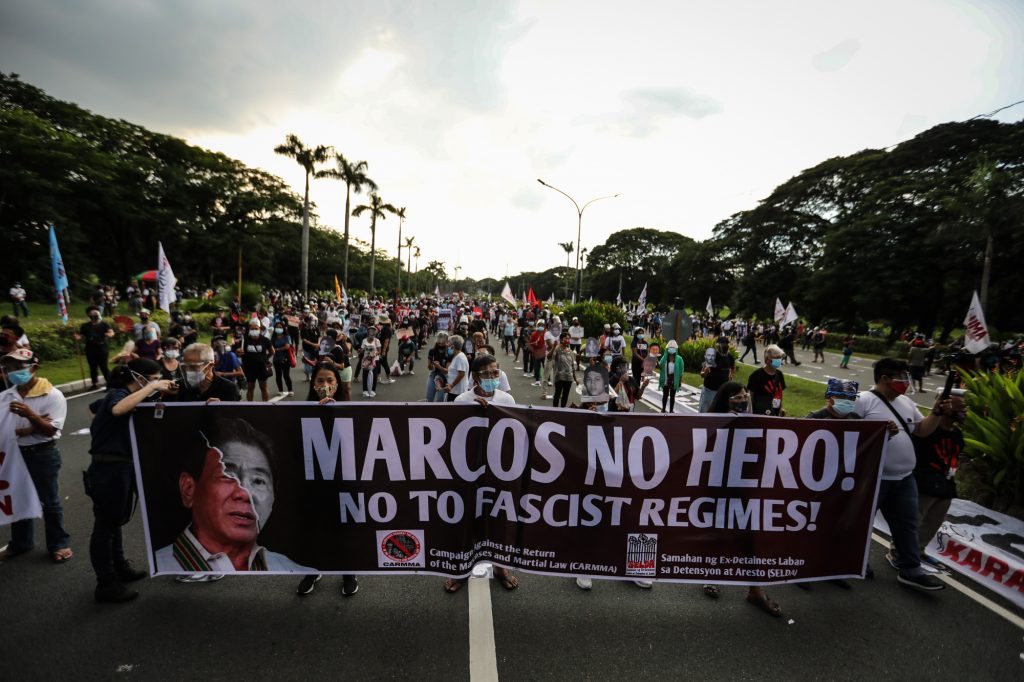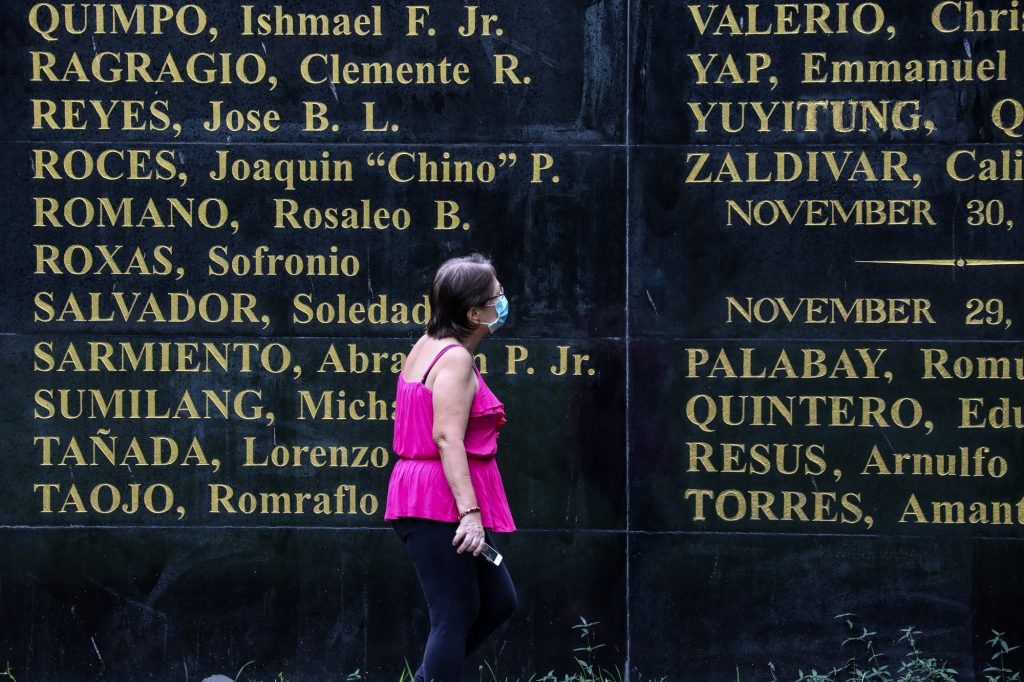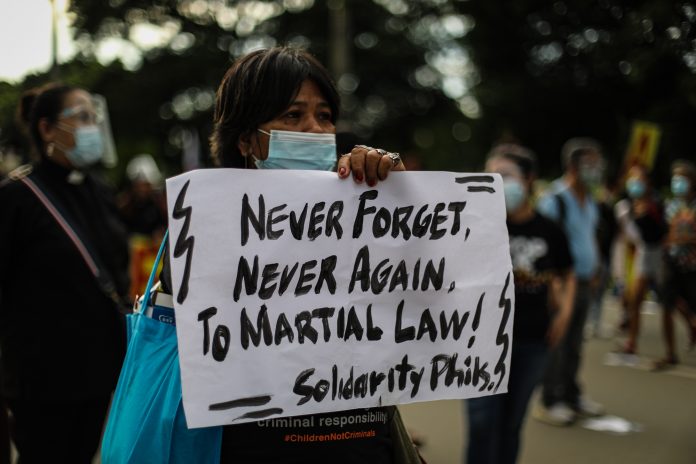Various church and human rights groups reminded Filipinos to learn the “lessons of the past” as the country marked the 49th anniversary of the declaration of martial law on September 21.
“As we mark [Ferdinand] Marcos’ declaration of martial rule and the tyranny and plunder that characterized it, we join the clamor for ‘Never Again!’ and the call for learning the lessons of the past,” read a joint statement from the country’s church leaders.
“The vigil for peace and justice must continue. No more to a despot!” it added.
On Sept. 21, 1972, former president Ferdinand Marcos declared martial law supposedly to address the growing threats of the communist insurgency in the country.
The martial law years under Marcos were considered to be the darkest years of the country with about 70,000 people imprisoned, 34,000 tortured, and 3,240 killed.
Although the formal document proclaiming martial law – Proclamation No. 1081, which was dated Sept. 21, 1972 – was formally lifted on January 17, 1981, Marcos retained essentially all of his powers as dictator until he was ousted in 1986.
In their statement during the anniversary of the martial declaration, the church leaders belonging to the “One Faith, One Nation, One Voice” group accused the administration of President Rodrigo Duterte of perpetrating “state terror, torture and killing under the insidious ‘war on drugs.’”
“Instead of promoting peace these have bred pain and resentful hearts, orphans and widows,” said the group that include Catholic and Protestant bishops.

‘Remember martial law’
In a separate statement, the Protestant National Council of Churches in the Philippines said “the present times are reminiscent of the dark days of the dictatorship.”
“There is rampant suffering of the Filipino people on a daily basis where social services are scant,” read the council’s statement.
“Public debt grew by leaps and bounds in order to fund a failed militarist approach to the COVID-19 pandemic response where there are reports of unbridled corruption,” the Protestant council said.
The group said the country is “experiencing a de facto martial law” under Duterte.
“With increasing gravity, there is a repeat of atrocities like killings, arrests, and other human rights violations that are attributed to state forces,” the church group noted.
The statement said that even church people, both clergy and lay, “are not spared.”
“On this day, may our memory remind us that our real heroes are the people who at the direst of circumstances continued to struggle and fight for peace based on justice,” read the council’s statement.

Remembering church people who died
A group of Christian student activists, meanwhile, honored church people “who have practiced their faith into action and become steadfast in condemning injustice.”
The activists cited Carlos Tayag, a Benedictine monk, who was abducted by military agents in 1976 and never to be seen again.
They also recalled activist priests Tito Paez and Mark Ventura who were killed in recent years and those who were attacked due to the government’s red-tagging.
“Despite the attacks … we stand by our commitment to strengthen our faith and to struggle with the broad masses,” said Kej Andres, spokesperson of the Student Christian Movement of the Philippines.
“More than a day of remembrance, the martial law anniversary is a call to struggle and liberation,” said the student activist.
The Jesuit-rut Ateneo de Manila University, meanwhile, vowed to “keep the memory” of martial law under Marcos alive, saying the country has apparently experienced “historical amnesia.”
In a statement, the university said the “main actors” of the military rule “are now back in the spotlight, working hard to blatantly revise history.”
“A large segment of our population… are too young to truly understand the impact of that period. And we, as a nation, have apparently been experiencing historical amnesia,” it said.
The university vowed to “always strive to keep our collective memory, however painful, alive.”
“Together, we need to keep the memory of Martial Law so that we won’t make those same mistakes again,” it said.









